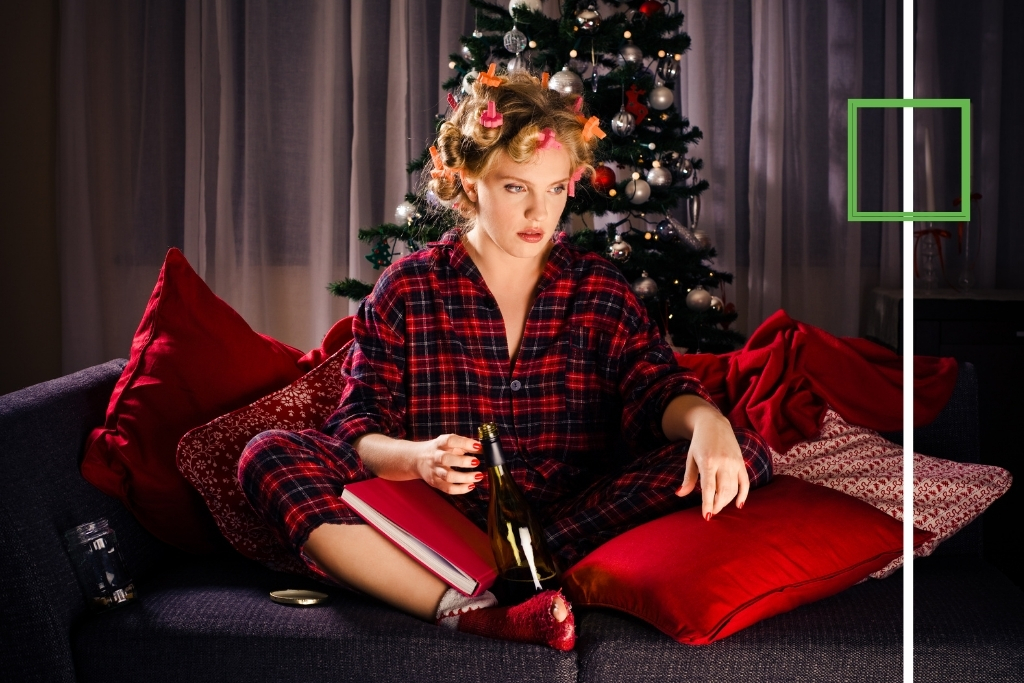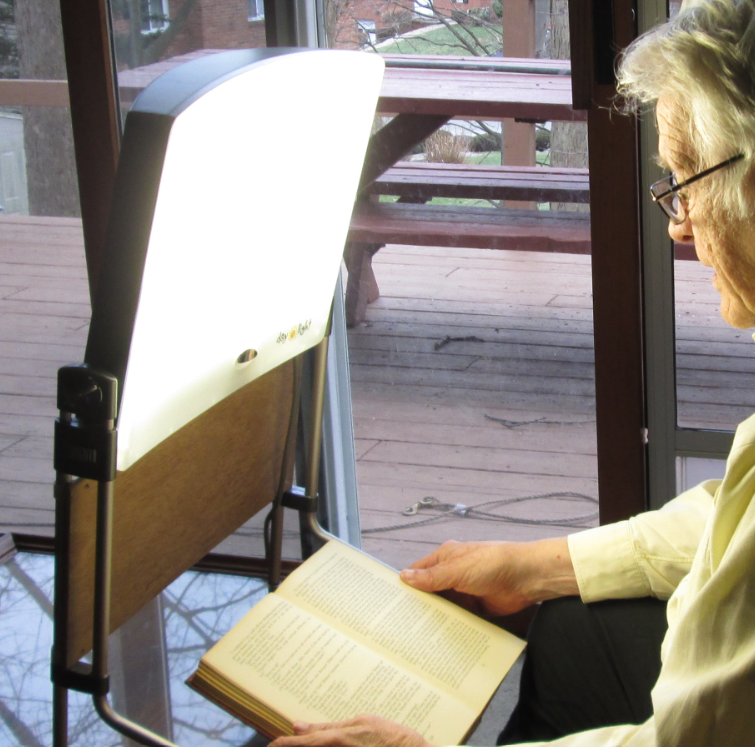What is Seasonal Depression?
Seasonal depression, also known as seasonal affective disorder (SAD), is a type of depression linked to seasonal changes, often starting in the fall. It can be more severe than the standard “winter blues” with colder, darker days. SAD affects daily life, emotions, and thoughts, but treatments are available to help you navigate through it.
Are you struggling with the symptoms of seasonal depression disorder? Contact We Level Up Florida mental health treatment center for compassionate support. Each call is free and confidential.
Seasonal Depression Symptoms
Usually, seasonal affective disorder symptoms show up in late fall or early winter and improve in the sunnier days of spring and summer. Some people experience the opposite less often, with symptoms starting in spring or summer. Whether it’s one way or the other, symptoms can begin mildly and worsen as the season goes on.
The most common signs of depression and seasonal affective disorder may include the following:
- Low energy.
- Difficulty concentrating.
- Changes in sleep patterns.
- Loss of interest in activities.
- Feelings of sadness or hopelessness.
- Changes in appetite or weight.
- Irritability.
- Avoidance of social activities.
- Thoughts of death or suicide.
Fall and Winter SAD Seasonal Depression
Winter-onset seasonal affective disorder, also known as winter depression, is characterized by specific symptoms that manifest during the colder months, starting from fall to winter seasons.
Individuals experiencing this variant of SAD may find themselves oversleeping, grappling with changes in appetite—often marked by a heightened craving for carbohydrate-rich foods—and, consequently, may experience weight gain.
The winter-specific symptoms extend to tiredness or low energy, creating a challenging combination that significantly impacts one’s daily functioning and overall well-being during the darker and colder season.

Can You Have Seasonal Depression in Summer and Spring?
Spring and summer depression, a less common variant of seasonal affective disorder (SAD), affects some individuals, beginning in late spring or early summer and lingering until fall. Unlike the more prevalent winter-related SAD, this unique form emerges when the days are longer and brighter.
The warmth and abundance of sunlight might seem like uplifting elements, but for those susceptible to summer depression, they trigger a downturn in mood and overall well-being. The reasons behind this season-specific depression are not entirely clear, but the impact on individuals’ mental health is significant.
Understanding and acknowledging the existence of summer seasonal depression is crucial for developing appropriate support and coping mechanisms for those who struggle with this less common yet challenging form of SAD.

Skip To:
Learn More:
- What Does Depression Feel Like? Facts About Depression Symptoms
- Manic Depression Meaning, Symptoms, and Effective Treatment
- What to Know About Smiling Depression, Symptoms and Treatment.
- Manic Depression Vs Bipolar. Are They The Same?
- Guide to Situational Depression Symptoms, Causes, and Effective Treatment
- Unipolar Depression Definition, Causes, Symptoms, and Treatment
- Major Depressive Disorder Medication, Treatment and Symptoms
- Relationship Depression, Symptoms, Causes, and What To Do
- Learn How to Cope with Depression. 10 Ways to Cope with Depression.
- Dementia and Depression Connection, Top Signs, and Symptoms
How to deal with seasonal depression? Get seasonal affective disorder counseling from We Level Up Florida’s mental health therapists. Reach out for professional support with a free call to our 24/7 mental health hotline.
Get Help. Get Better. Get Your Life Back.
Searching for Accredited Dual Diagnosis Mental Health Centers Near You?
Even if therapy failed previously, or are in the middle of a difficult crisis, we stand ready to support you. Our trusted behavioral health specialists will not give up on you. When you feel ready or just want someone to speak to about counseling alternatives to change your life call us. Even if we cannot assist you, we will lead you to wherever you can get support. There is no obligation. Call our hotline today.
FREE 24/7 Dual Diagnosis Mental Health Services HotlineWhat Causes Seasonal Depression?
Around 5% of U.S. adults go through seasonal depression, often beginning in young adulthood, typically between 18 and 30 years old. Seasonal affective disorder is more common in women, but the reasons for this difference are unclear.
Also, approximately 10% to 20% of Americans may experience a milder version of the winter blues.
The exact cause of seasonal affective disorder is still unknown. However, possible factors include:
- Changes in sunlight: Reduced exposure to sunlight during fall and winter months.
- Biological factors: Disruptions in the body’s internal clock (circadian rhythm) and changes in melatonin levels.
- Serotonin levels: Reduced serotonin levels, a neurotransmitter associated with mood regulation.
- Genetics: A family history of seasonal affective disorder or other forms of depression.
- Gender: Women are more commonly affected than men.
- Age: Seasonal depression often begins in early adulthood.
- Geography: Living farther from the equator, with less sunlight, increases the risk.
- Existing mental health conditions: Individuals with a history of depression or bipolar disorder may be more susceptible.
- Stress: Increased stress levels may contribute to the development or worsening of seasonal depression.
- Occupational factors: Certain professions with limited outdoor exposure may be associated with a higher risk.

Complications from Seasonal Depression
Is seasonal depression real? Yes, it is. You have to take the signs and symptoms of seasonal affective disorder seriously. Without treatment, like other types of depression, SAD can worsen and cause additional problems.
- Impaired daily functioning: Seasonal depression can hinder a person’s ability to carry out everyday tasks and responsibilities.
- Social withdrawal: Individuals may isolate themselves, impacting relationships and social interactions.
- Work or academic difficulties: Decreased productivity and concentration can affect performance in professional or educational settings.
- Substance abuse: Some may turn to substances as a way to cope with the challenges of seasonal depression.
- Increased risk of other mental health conditions: Seasonal depression may contribute to or exacerbate existing mental health issues.
- Relationship strain: The emotional toll of seasonal depression can strain relationships with family, friends, and romantic partners.
- Physical health issues: Neglecting self-care may lead to physical health problems, such as disrupted sleep and changes in appetite.
- Suicidal thoughts: In severe cases, untreated seasonal depression may lead to an increased risk of suicidal ideation.
Do you have questions about coping with seasonal depression or treatment in general? Call our helpline 24/7.

End the Emotional Pain. Get Your Life Back.
Feeling Depressed, Anxious or Struggling with Mental Health Illness? Get Safe Comfortable Mental Health Dual Diagnosis High-Quality Therapy From Counselors That Care. Begin Your Recovery Now.
Hotline (855) 940-6125Seasonal Depression Treatment
Seeking treatment for seasonal depression is a proactive step towards reclaiming a sense of well-being during challenging times. The benefits of reaching out for assistance extend beyond the alleviation of symptoms. It opens a pathway to understanding, support, and personalized strategies for managing seasonal depression.
Recognizing the importance of seeking help fosters a journey toward resilience and empowers individuals to navigate the complexities of seasonal depression with the guidance of healthcare professionals and support networks.
Standard evidence-based therapies and treatments for seasonal affective disorder may include the following:
- Light therapy: Exposure to bright light that simulates natural sunlight, regulating mood and the body’s internal clock.
- Cognitive-behavioral therapy (CBT): Psychotherapeutic approach identifying and challenging negative thought patterns, providing coping strategies for emotional challenges.
- Medication: Selective serotonin reuptake inhibitors (SSRIs) or serotonin and norepinephrine reuptake inhibitors (SNRIs) may be prescribed, consulting with healthcare professionals for individual suitability.
- Exercise: Regular physical activity, such as walking or yoga, boosts mood by increasing endorphin production.
- Mindfulness-based therapies: Practices like mindfulness-based cognitive therapy (MBCT) and meditation focus on present-moment awareness, reducing stress and enhancing resilience.
- Consistent daily routine: Establishing regular sleep, eating, and activity patterns stabilizes circadian rhythms and provides stability.
- Social support: Connecting with friends, family, or support groups reduces isolation and fosters a supportive environment.
- Nutritional factors: Consuming a well-balanced diet rich in omega-3 fatty acids, vitamin D, and B vitamins supports overall mental health, with supplements if needed.
To cope with summer depression, focus on self-care that suits the warm weather.
- Enjoy outdoor activities during more relaxed times like early morning or late evening.
- Stay hydrated.
- Maintain a regular sleep routine.
- Seek support from friends, family, or professionals to ease the challenges of summer depression.
How Does Light Therapy Work to Help with Seasonal Depression?
Using a lamp for seasonal affective disorder (SAD) often shows results within two to four days, with full benefits taking about two weeks. Healthcare providers recommend using light therapy throughout the entire winter to prevent the quick return of SAD symptoms after stopping.
Get a unique lamp with bright white fluorescent light for light therapy, 20 times brighter than regular indoor light. It should emit 10,000 lux. When using it, don’t look directly into the light. Keep the lamp about two to three feet away while you read, eat, work, or do activities.
The effectiveness of a seasonal depression lamp therapy can be influenced by the time of day. Morning light therapy is most effective, while using it later may lead to insomnia. Health professionals often suggest 10,000 lux for 15 to 30 minutes every morning.
While light therapy is generally safe, it may not be suitable if you have diabetes or retinopathies, take certain medications that increase sensitivity to sunlight, or have bipolar disorder, as it can trigger mood changes. Always consult your provider to tailor the treatment to your needs and conditions.
First-class Facilities & Amenities
World-class High-Quality Mental Health Services & Behavioral Health Substance Abuse Treatment
Rehab Centers TourRenowned Mental Health Centers. Serene Private Facilities. Inpatient Rehab Programs Vary.
Mental Health Helpline (855) 940-6125Proven recovery success experience, backed by a Team w/ History of:
15+
Years of Unified Experience
100s
5-Star Reviews Across Our Centers
10K
Recovery Successes
- Comprehensive Dual-Diagnosis Treatment
- Complimentary Family & Alumni Programs
- Coaching, Recovery & Development Events
- Comfortable Onsite Medical Detox Center
How to Prevent Seasonal Depression?
Preventing seasonal depression involves adopting a holistic approach that addresses both physical and emotional health. One effective strategy is light therapy, which requires exposure to bright artificial light that mimics natural sunlight. Light for seasonal depression can help regulate the body’s internal clock and improve mood.

Incorporating regular exercise into one’s routine is another crucial element. Physical activity has been linked to the release of endorphins, the body’s natural mood lifters, and can counteract the lethargy often associated with seasonal depression.
Maintaining a consistent daily routine is also essential in preventing the onset of seasonal depression. Establishing regular sleep patterns and meal times can help stabilize circadian rhythms, contributing to overall mental health. Adequate and quality sleep is particularly vital, as disruptions in sleep patterns can exacerbate depressive symptoms.
Building a support network is a crucial aspect of prevention. Connecting with friends, family, or support groups provides emotional reinforcement and a sense of community, reducing the impact of isolation that often accompanies seasonal depression. Open communication about feelings and experiences fosters understanding and empathy within these relationships.
Mindfulness and relaxation techniques can effectively prevent seasonal depression by reducing stress and promoting emotional balance. Techniques such as meditation, deep breathing exercises, and yoga can contribute to a sense of calm and resilience against the challenges posed by the changing seasons.
Moreover, awareness of and addressing personal risk factors is integral to prevention. This includes recognizing patterns of seasonal depression in oneself or family history and taking preemptive measures when symptoms arise.
Proactive measures taken in these areas can significantly reduce the likelihood and severity of seasonal depression.
We Level Up Florida Mental Health Treatment Center for Seasonal Depression
Find renewed hope and resilience at We Level Up Florida Mental Health Treatment Center, your ally in conquering seasonal affective disorder. Our expert team of mental health professionals employs a personalized and evidence-based approach, integrating therapies like psychotherapy, cognitive-behavioral therapy, and specialized light therapy to address the unique challenges of SAD.
Committing to comprehensive care, we alleviate symptoms and empower individuals with coping strategies and resilience-building tools. Choose We Level Up in Florida for a transformative journey towards lasting mental wellness, where compassionate support and effective treatment converge to illuminate the path to a brighter, healthier tomorrow.
Start your journey to healing by reaching out to We Level Up Florida Mental Health Treatment Center. Call us for a free and confidential assessment.
World-class, Accredited, 5-Star Reviewed, Effective Mental Health Dual Diagnosis Programs. Complete Integrated Inpatient Rehab with Free Post Discharge Therapy Planning.
CALL (855) 940-6125End the Emotional Pain Rollercoaster. Gain Stability & Happiness Through Recovery Treatment. Start Mental Health Counseling Today. Get Free No-obligation Guidance by Behaviroal Health Specialists Who Understand Mental Health Recovery.
Therapist Tips to Cope and Combat Manic Depressive Symptoms
Experience Transformative Recovery at the We Level Up Treatment Center.
See our authentic success stories. Get inspired. Get the help you deserve.



Start a New Life
Begin with a free call to a behavioral health treatment advisor. Learn more about our dual-diagnosis programs. The We Level Up treatment center network delivers recovery programs that vary by each treatment facility. Call to learn more.
- Personalized Care
- Caring Accountable Staff
- World-class Amenities
- Licensed & Accredited
- Renowned w/ 5-Star Reviews
We’ll Call You
Search We Level Up FL Seasonal Depression, Coping Tips, Mental Health Topics, & Resources
Sources
- Melrose S. Seasonal Affective Disorder: An Overview of Assessment and Treatment Approaches. Depress Res Treat. 2015;2015:178564. Doi: 10.1155/2015/178564. Epub 2015 Nov 25. PMID: 26688752; PMCID: PMC4673349. Seasonal Depression Summer, Spring, Fall, Winter.
- Schneider E, Liwinski T, Imfeld L, Lang UE, Brühl AB. Who is afraid of Christmas? The effect of Christmas and Easter holidays on psychiatric hospitalizations and emergencies: Systematic review and single center experience from 2012 to 2021. Front Psychiatry. 2023 Jan 11;13:1049935. Doi: 10.3389/fpsyt.2022.1049935. PMID: 36713912; PMCID: PMC9874097.
- Supporting Your Mental Health During the Holiday Season – Substance Abuse and Mental Health Services Administration (SAMHSA)
- 12 Ways to Have a Healthy Holiday Season – Centers for Disease Control and Prevention (CDC)
- Helping Veterans manage holiday stress – VA News (.gov)
- Sansone RA, Sansone LA. The Christmas effect on psychopathology. Innov Clin Neurosci. 2011 Dec;8(12):10-3. PMID: 22247812; PMCID: PMC3257984. Study related to depressed Christmas.
- Munir S, Abbas M. Seasonal Depressive Disorder. [Updated 2023 Mar 20]. In: StatPearls [Internet]. Treasure Island (FL): StatPearls Publishing; 2023 Jan-. Available from: https://www.ncbi.nlm.nih.gov/books/NBK568745/
- Seasonal affective disorder – MedlinePlus (.gov)
- Beat the Holiday Blues – Office on Women’s Health (.gov)
- Seasonal Affective Disorder – National Institute of Mental Health (NIMH)





